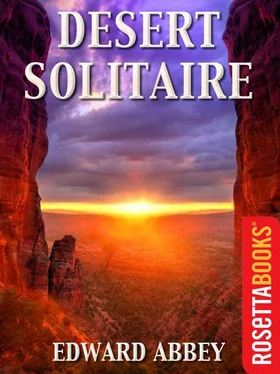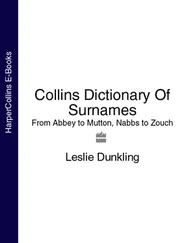Abbey, Edward - Desert Solitaire (Edward Abbey Series )
Здесь есть возможность читать онлайн «Abbey, Edward - Desert Solitaire (Edward Abbey Series )» — ознакомительный отрывок электронной книги совершенно бесплатно, а после прочтения отрывка купить полную версию. В некоторых случаях можно слушать аудио, скачать через торрент в формате fb2 и присутствует краткое содержание. Год выпуска: 2011, Издательство: RosettaBooks, Жанр: Старинная литература, на английском языке. Описание произведения, (предисловие) а так же отзывы посетителей доступны на портале библиотеки ЛибКат.
- Название:Desert Solitaire (Edward Abbey Series )
- Автор:
- Издательство:RosettaBooks
- Жанр:
- Год:2011
- ISBN:нет данных
- Рейтинг книги:4 / 5. Голосов: 1
-
Избранное:Добавить в избранное
- Отзывы:
-
Ваша оценка:
- 80
- 1
- 2
- 3
- 4
- 5
Desert Solitaire (Edward Abbey Series ): краткое содержание, описание и аннотация
Предлагаем к чтению аннотацию, описание, краткое содержание или предисловие (зависит от того, что написал сам автор книги «Desert Solitaire (Edward Abbey Series )»). Если вы не нашли необходимую информацию о книге — напишите в комментариях, мы постараемся отыскать её.
Desert Solitaire (Edward Abbey Series ) — читать онлайн ознакомительный отрывок
Ниже представлен текст книги, разбитый по страницам. Система сохранения места последней прочитанной страницы, позволяет с удобством читать онлайн бесплатно книгу «Desert Solitaire (Edward Abbey Series )», без необходимости каждый раз заново искать на чём Вы остановились. Поставьте закладку, и сможете в любой момент перейти на страницу, на которой закончили чтение.
Интервал:
Закладка:
There must have been many who were glad to quit. For in addition to the unnumbered exasperations and frustrations which plague the small businessman, and the customary hazards of work in a mine, suggestions of another danger—nuclear radiation—could not be entirely ignored. The uranium miner down deep in his burrow was not only inhaling rock dust every minute and working daily with dynamite, his body was absorbing far more than the usual dosage of alpha, beta and gamma rays. The miner would disregard this danger, so vague, theoretical and intangible (to him), but for the rest of his life whenever he became sick or his health seemed to be ebbing he might remember and wonder about the rumors he had heard years before in the bars and machine shops of Moab, Monticello, Mexican Hat, Green River. Those hot, dusty, strange and isolated little towns set so far apart from one another, so far from anywhere, in the middle of silence and emptiness and burning rock.
Whatever the cost, there was for all who took part the zest of gambling and the exhilaration of adventure into unknown or little-known territory. For a few an adventure which became a nightmare:
Two men, for example, greenhorn treasure-seekers, went down the Colorado in a small motorboat overloaded with canned goods, ore samples, hammers, Geiger counters. When they reached the junction with the Green River something went wrong; the motor failed and they drifted helplessly into the forty-mile millrace of Cataract Canyon, a place where they had not planned to go. Nearly a century before Major Powell, the first man to go through and write about it, described a portion of Cataract Canyon as follows:
July 24, 1869.—We examine the rapids below. Large rocks have fallen from the walls—great, angular blocks which have rolled down the talus and are strewn along the channel. We are compelled to make three portages in succession, the distance being less than three fourths of a mile, with a fall of 75 feet. Among these rocks, in chutes, whirlpools and great waves, with rushing breakers and foam, the water finds its way, still tumbling down. We stop for the night only three fourths of a mile below the last camp.… Darkness is coming on; but the waves are rolling with crests of foam so white they almost give a light of their own. Near by, a chute of water strikes the foot of a great block of limestone 50 feet high, and the waters pile up against it and roll back. Where there are sunken rocks the water heaps up in mounds or even in cones. At a point where rocks come very near the surface, the water forms a chute above, strikes, and is shot up 10 or 15 feet, and piles back in gentle curves, as in a fountain; and on the river tumbles and roars.
The two prospectors never got through at all. Near the very beginning their boat overturned, cast them out, and went down the river on its own. The men managed to get ashore still alive. But they could not agree on the best way back to human settlement. One hiked up a side canyon and struck off west across-country toward the hamlet of Hanksville, some forty miles away by airline. The second man, thinking it wiser to stay close to water, trudged northeast along the Colorado back toward Moab, their starting point. He had twice as far to go, taking into account the meanders of the river, but was in no danger of dying from thirst. Neither had any food.
But the first man had all the luck. Soon after the organized search began he was spotted from the air and promptly rescued. While his former comrade struggled on mile after mile and day after day through the willow thickets and over the talus debris on the river’s shore. Search parties in powerboats cruised down the river and back again but incredibly failed to see him. He saw them but was too exhausted to shout, lacked matches to start a fire, and apparently was too frightened or too delirious to stay at one spot and construct some kind of distress signal. “They never looked in the right direction,” he would later explain, bitterly. And therefore crawled on over the rocks under the desert sun. Now and then catching a lizard which he ate raw and whole. “Tasted like tuna,” he reported. Finally he was discovered ten days after the search began near an abandoned miner’s shack below Dead Horse Point. They found him sitting on the ground hammering feebly at an ancient can of beans, trying to open the can with a stone. Hospitalized for exposure, shock and malnutrition, he urged that the entrance to Cataract Canyon be somehow chained off, closed forever to human exploration.
(Some present-day Moabites have suggested that the Federal Government take atomic bombs and blast a straight deep channel through Cataract Canyon so that they—the Moabites—can pilot their new cabin cruisers without hazard all the way down to the new Glen Canyon reservoir.)
In all those years of feverish struggle, buying and selling, cheating and swindling, isolation, loneliness, hardship, danger, sudden fortune and sudden disaster, there is one question about this search for the radiant treasure—the hidden splendor—which nobody ever asked. It is necessary, therefore, to relate one more story concerning the uranium strike, a story based on events which may or may not have actually happened but which all who tell it will swear is true:
Among the thousands drawn to the canyon country by the publicity of the boom was one Albert T. Husk of Star Route 2, Box 17, Flat Rock, Texas. He brought with him his young and pleasant-looking (if somewhat thin and anxious) second wife, his eleven-year-old son Billy-Joe, and two little girls younger than the boy. He had left behind a seventy-acre farm in the East Texas pinelands, a Fordson tractor and lesser implements, two purebred Blue Tick coondogs and his father, A. T. Husk Senior, to look after things. All except the old man had been mortgaged to finance the hunt for new wealth and a new life. For Albert Husk was a man of vision.
The Husk family rattled into Moab one blazing hot day in June riding in a jeep pickup which looked as if it had been rolled down a mountainside and towing without safety chain an antique housetrailer of the type which only sheepherders live in these days: plywood and tarpaper, a thin coat of aluminum paint, tires worn down to the threads (purchased from and guaranteed by a dealer in Lubbock named Sharpe). Husk found a vacant spot in the mouth of Courthouse Wash where, under a splendid cottonwood tree, he set up his base camp. There was a spring nearby, with a pool below it large as a bathtub where his new wife could bathe and wash her flaxen hair. With two charges of blasting powder (one of which failed to go off) Husk excavated a pit toilet in the alluvium (he was in a hurry) and slung a tent over it. The Baptist Church was only five miles away in the heart of downtown Moab behind T. C. Tracey’s gas station but once his family had been established in their new home Husk—a somewhat indifferent Christian—went straight to the Club 66, where the smoke-dense air crackled with radioactivity and the smell of honest miners’ sweat. Here he met his benefactor, a man known as Charles “Chuck” Graham. Or Ingraham—the name has been obscured by the many variants of the narrative.
Mr. Graham like Husk was also a newcomer to the Moab area, though not so new as the latter. In fact he was already pretty well dug in. He owned a flying service—light planes and helicopters for hire or charter—carried a pilot’s license, and operated as well the only car- and truck-rental agency in town. An affable and helpful man, he quickly engaged Husk in a friendly conversation at the bar. From the bar they moved to a table in the corner where Mr. Graham produced a large tectonic map and explained to Husk as well as he could (for Husk had only the dimmest notions of geology) what the prospects were for making fresh uranium discoveries in the Colorado Plateau.
Читать дальшеИнтервал:
Закладка:
Похожие книги на «Desert Solitaire (Edward Abbey Series )»
Представляем Вашему вниманию похожие книги на «Desert Solitaire (Edward Abbey Series )» списком для выбора. Мы отобрали схожую по названию и смыслу литературу в надежде предоставить читателям больше вариантов отыскать новые, интересные, ещё непрочитанные произведения.
Обсуждение, отзывы о книге «Desert Solitaire (Edward Abbey Series )» и просто собственные мнения читателей. Оставьте ваши комментарии, напишите, что Вы думаете о произведении, его смысле или главных героях. Укажите что конкретно понравилось, а что нет, и почему Вы так считаете.












